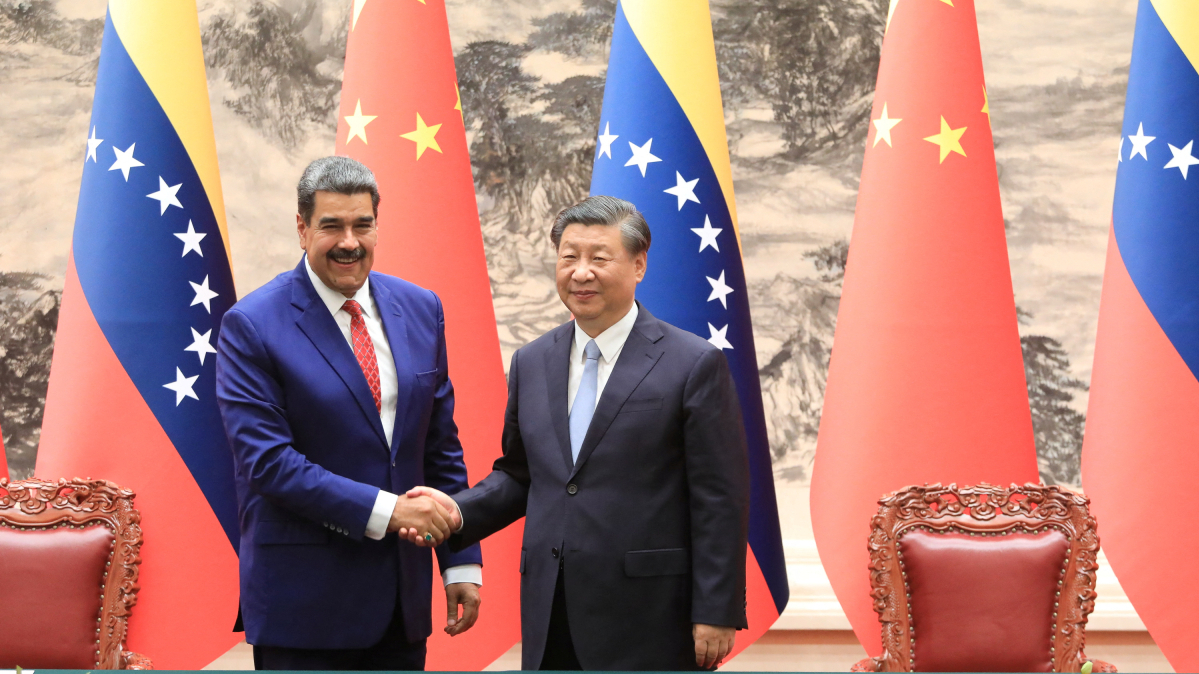Cuba fuel crisis turns into waste emergency as trash piles up in Havana amid energy blockade
Cuba’s fuel crisis has turned into a waste crisis, with garbage piling up on most street corners in Havana as many collection trucks lack enough pet...

Chinese President Xi Jinping has once again expressed strong support for Venezuelan President Nicolás Maduro, condemning foreign interference and criticising U.S. actions in the region.
His comments come in two parts: a face‑to‑face meeting in Moscow earlier in the year and a personal letter to Maduro on his birthday.
Just recently, Xi sent a letter to Maduro in which he strongly rejected any interference in Venezuela’s internal affairs, reaffirming China’s support for Caracas in defending its sovereignty, security, and dignity.
He expressed his desire to work with Maduro to deepen the China-Venezuela strategic partnership and generate tangible benefits for both peoples.
Xi also reminded Maduro of their Moscow meeting earlier in the year, noting that they reached important consensus on strengthening bilateral ties.
President Xi Jinping met with Maduro in May, on the sidelines of events in Moscow commemorating the 80th anniversary of the Soviet Union’s victory in World War II.
During the meeting, Xi described China and Venezuela as “good partners of mutual trust and common development” and reaffirmed Beijing’s “firm support” for Venezuela’s sovereignty, national dignity, and social stability.
The Chinese President also highlighted the deepening of bilateral cooperation since the two countries elevated their relationship to an “all‑weather strategic partnership” in 2023.
He pledged to strengthen collaboration across areas such as trade, energy, technology, education, and governance while stressing China’s commitment to multilateralism and its support for an international system based on the United Nations and international law.
President Xi’s dual moves: the public meeting and the personal letter are being viewed as a clear signal of China’s long-term commitment to Venezuela, even amid rising tensions with the U.S. over its actions in the region.
As Washington increases military activity around the Caribbean, Beijing’s message shows its opposition to what it perceives as coercive foreign influence.
For Venezuela, China’s backing remains strategically important. Caracas has leaned on Beijing for financial, political, and diplomatic support amid years of economic hardship and pressure from the West. The renewed Chinese commitment could help stabilise Maduro’s government while strengthening its global alliances.
At the same time, for China this is part of its geopolitical strategy of building influence in Latin America, pushing back against US. dominance, and positioning itself as a defender of sovereignty and multilateralism.
Xi’s letter and his earlier meeting with Maduro together illustrate how Beijing is combining personal diplomacy and high-level statecraft to deepen its ties with key partners and to challenge U.S. influence in its own geopolitical backyard.
U.S. Ambassador to NATO Matthew Whitaker said China has the power to bring an end to Russia’s war in Ukraine, arguing that Beijing is enabling Moscow’s military campaign.
Austria’s Janine Flock won the gold medal in the women’s skeleton event at the Milano-Cortina 2026 Winter Olympics on Saturday.
Iran’s Supreme National Security Council Secretary Ali Larijani said the United States could evaluate its own interests separately from those of Israel in ongoing negotiations between Tehran and Washington.
U.S. Secretary of State Marco Rubio on Sunday (15 February) called it “troubling” a report by five European allies blaming Russia for killing late Kremlin critic Alexei Navalny using a toxin from poison dart frogs.
Israel’s National Guard is preparing to deploy drones capable of firing tear gas at Palestinians in the occupied West Bank, including East Jerusalem, as part of security preparations ahead of the Muslim holy month of Ramadan, Israeli Channel 12 reported on Saturday.
The Prime Minister, Mark Carney, announced on 16 February that the Honourable Janice Charette has been appointed as the next Chief Trade Negotiator to the United States.
Cuba’s fuel crisis has turned into a waste crisis, with garbage piling up on most street corners in Havana as many collection trucks lack enough petrol to operate.
Day 10 of the Milano Cortina 2026 Winter Olympics delivered high-stakes semifinals, dramatic finishes and classic podium moments across Milan and the Italian Alps. Photographers captured split seconds of symmetry before puck drops, explosive turns on the ice and triumphant celebrations.
The mother and widow of Russian opposition leader Alexei Navalny marked the second anniversary of his death on Monday, as European allies released an assessment saying he was poisoned, adding that the Russian state had the means, motive and opportunity to deploy the lethal toxin.
U.S. Secretary of State Marco Rubio said Washington is ready to pursue diplomacy with Iran as nuclear talks resume in Geneva, using a visit to Budapest on Monday (16 January) to reaffirm both U.S. negotiating aims and strong ties with Hungary ahead of its April election.
You can download the AnewZ application from Play Store and the App Store.

What is your opinion on this topic?
Leave the first comment